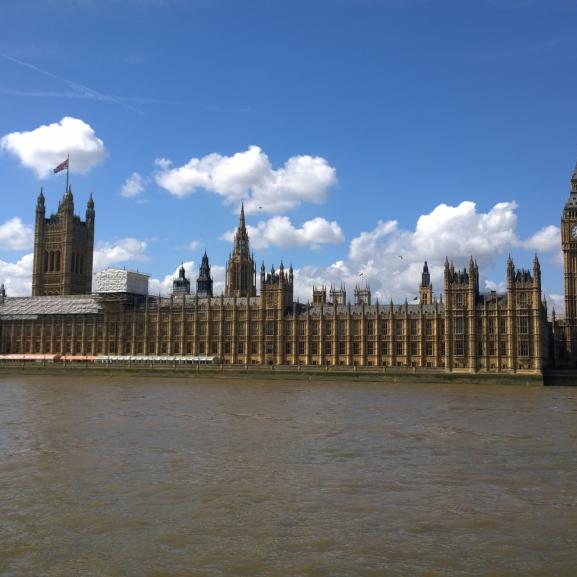MF Welcomes Challenge to Defence Ministry Over Outlawed Interrogation Methods
A Parliamentary challenge to the Ministry of Defence over the use of illegal interrogation techniques is a welcome attempt to discover the truth about how the armed forces are instructed to treat prisoners, the Medical Foundation says.
The Parliamentary Joint Committee on Human Rights has written to the MoD asking it to explain "stark inconsistencies" between the official ministry line, and evidence given at the recent court martial of British troops following the death of a detainee in Iraq.
At issue is whether the armed forces believe they have official sanction to "condition" detainees with sensory deprivation techniques to make them more compliant during interrogation.
The court martial board into the death of Iraqi hotel worker Baha Mousa, with 93 injuries to his body, heard evidence that senior British officers, including a legal officer, sanctioned "conditioning" that included the use of hooding and forcing prisoners to stand for prolonged periods in stressful positions.
The MoD, however, told the joint committee during its recent enquiry into the UK's compliance with the UN Convention Against Torture, that the use of hooding and stress positioning for the purpose of interrogation had been prohibited since 1972.
The Committee has written to the Secretary of State for Defence for an explanation and says it expects a speedy response. Chairman Andrew Dismore MP said: "We have asked the Ministry of Defence to explain what appear to be stark inconsistencies in the evidence presented to our Committee about the use of inhuman and degrading interrogation techniques prohibited as long ago as 1972.
"The Government should now accept our recommendation that the provisions of the Torture Convention should apply to all of our armed forces' actions and ensure that our troops are suitably trained to equip them with the skills and knowledge needed for the UK to comply fully with our international obligations."
In welcoming the move, MF director of policy and external affairs, Leanne MacMillan, said:
"It is quite clear that assurances given to Parliament by the then Prime Minister Edward Heath in March 1972 have not been honoured.
"He stated quite unequivocally in the House of Commons that conditioning techniques such as hooding, stress positions, sleep deprivation, the withholding of food and drink , and bombardment with loud noise would not be used by Britain's armed forces unless sanctioned in advance by Parliament.
"It is quite clear, however, both from the court martial over Mr Mousa's death, and from what the Medical Foundation has learnt from former army interrogators, that the techniques have continued to be used to "prolong the shock of capture" and render detainees more malleable.
"Indeed, members of the armed forces are trained in such techniques as they are trained in how to resist them if they are captured themselves.
"The European Court of Human Rights determined in the 1970's that such techniques were inhuman and degrading. More recently the United Nations Committee Against Torture, in a case against Israel in 1997, determined that hooding and restraint in painful conditions, as well as sleep deprivation and noise bombardment, did amount to torture.
"We welcome the joint committee's efforts to throw light on what would appear to be a case of the military ignoring what Parliament has decreed."
Mr Mousa, a 26-year-old hotel worker, was detained in 2003, along with a number of other Iraqis, by members of the Queens Lancashire Regiment at a hotel in Basra where weapons and suspected bomb-making equipment were found.
After his death, seven British soldiers faced a variety of charges ranging from manslaughter, inhuman treatment, perverting the course of justice, causing actual bodily harm and negligently performing a duty.
Six, including commanding officer Colonel Jorge Mendonca, were cleared, while one, Corporal Donald Payne although cleared of manslaughter and perverting the course of justice, pleaded guilty to "inhuman treatment of persons protected under the Geneva Conventions" and was jailed for a year and dismissed the army.
In the process he became Britain's first convicted war criminal as it was the first time British servicemen had been prosecuted for war crimes under the International Criminal Court Act 2001.
The prosecution said that while undergoing "conditioning" for interrogation, the detainees were forced to stand in a painful posture. If they failed to maintain the position - with arms outstretched and knees bent - they were beaten.
Edward Heath's condemnation of such "conditioning" techniques in 1972 followed controversy over the treatment meted out to 14 nationalist prisoners arrested the previous year who were subjected to hooding, noise bombardment, food deprivation, sleep deprivation and being forced to stand for long periods in a stressful position.
After the men were transferred to a prison, reports of what they had endured soon reached the media leading Heath to appoint a commission to investigate. It found that while ill treatment had occurred, it fell short of brutality.
The furore that ensued led to Heath setting up a second enquiry called the Parker Commission to consider "authorised procedures for the interrogation of persons suspected of terrorism." After due deliberation, two of its members, Lord Parker of Waddington and John Boyd Carpenter, filed a majority report which accepted at face value army claims that the torture had produced a great deal of information (although not one of the 14 was ever charged with a terrorist offence.)
Noting that the British Army had previously used some or all of the techniques in colonies such as Kenya, Aden and Malaya, they concluded there was no reason to rule them out on moral grounds.
A third member of the commission, Lord Gardiner, strenuously disagreed. He said there was nothing in domestic law that permitted members of the security forces to act in such a manner, and no officer or politician had the right to authorise it.
In conclusion he rued the abandoning of "our legal, well-tried and highly successful wartime interrogation methods" in favour of " procedures which were secret, illegal, not morally justifiable and alien to the traditions of what I believe still to be the greatest democracy in the world."
Edward Heath, his mind perhaps concentrated by the fact that the Irish government, on behalf of the 14 men, was in the process of taking the British government to Europe about the abuses, endorsed the minority report and announced that the government would prohibit such techniques.
He told Parliament: "...interrogation in depth will continue when it is deemed right, but these techniques will not be used for this purpose....if any Government did come to the decision, after the most careful thought, that it was necessary to use some or all of these techniques, it would be necessary to come to the House first before doing so."






